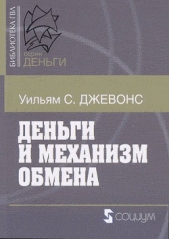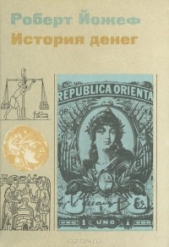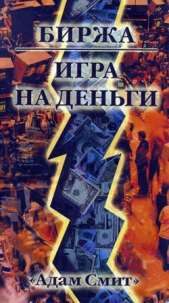Частные деньги

Частные деньги читать книгу онлайн
Книга «Частные деньги» принадлежит перу лауреата Нобелевской премии по экономике Фридриха Хайека, посвящена практическим вопросам построения и функционирования свободного общества, в яркой убедительной форме показывает необходимость устранения правительственной монополии эмитировать платежные средства, показывает механизмы и последствия злоупотреблений общественным доверием со стороны правительств, содержит предложения по созданию конкурентной системы средств расчетов между юридическими и физическими лицами, включая покупки за наличные и создание резервов для будущих платежей.
Внимание! Книга может содержать контент только для совершеннолетних. Для несовершеннолетних чтение данного контента СТРОГО ЗАПРЕЩЕНО! Если в книге присутствует наличие пропаганды ЛГБТ и другого, запрещенного контента - просьба написать на почту [email protected] для удаления материала
Приложение и библиография
Приложение Крах бумажных денег 1950–1975 гг.



* — По отношению к доллару США
** — По отношению к золоту, цифра основана на цене в 141 доллар за унцию на свободном рынке в конце 1975 г. против официальной цены 1950 г. в 35 долларов за унцию.
Источник: перепечатано с разрешения автора и издателя из: Franz Pick. Pick's Currency Yearbook, 1976–1977 Edition, Pick Publishing Corp., N.Y. 1977.
Библиография
[1] Archibald Mison, History of Europe, vol. I, London, 1833
[2] W. Bagehot and Y. S. Park, Artificial Currency Units: The Formation of Functional Currency Areas, Essays in International Finance, # 114, Princeton,1976
[3] Walter Bagehot, Lombard Street [1873], Kegan Paul, London, 1906
[4] Mann, Die Philosophie der Geschichte als Soziologie, 2nd edn., Leipzig, 1915
[5] Jean Bodin, The Six Books of a Commonweale [1576], London, 1606
[5a] Fernand Braudel, Capitalism and the Material Life 1400–1800 [1967], London, 1973
[6] S.P. Breckinridge, Legal Tender, University of Chicago Press, Chicago, 1903
[7] С. Bresciani-Turroni, The Economics of Inflation [1931], Alien & Unwin, London, 1937
[7a] Henry Phelps Brown and Sheila V. Hopkins, «Seven Centuries of the Prices of Consumables, compared with Builders Wage-rates», Economica, November 1956
[7b] Henry Phelps Brown and Sheila V. Hopkins, «Builders Wage-rates, Prices and Population: Some Further Evidence», Economica, February 1959
[8] W.W. Carlile, The Evolution of Modem Money, Macmillan, London, 1901
[9] H. Cernuschi, Mesanique de L'echange, Paris, 1865
[10] H. Cernuschi, Contre le billet de banques, Paris, 1866
[11] Carlo M. Cipolla, Money, Prices and Civilization in the Mediterranean World: Fifth to Seventeenth Century, Gordian Press, New York, 1967
[12] Lauchlin Currie, The Supply and Control of Money in the United States, Harvard University Press, Cambridge, Mass., 1934
[12a] Raymond de Roover, Gresham on Foreign Exchanges, Cambridge, Mass., 1949
[13] С.Н. Douglas, Social Credit [1924], Omnie Publications, Hawthorn, Calif, 1966
[14] Otto Eckstein, «Instability in the Private and Public Sector», Swedish Journal of Economics, 75/1, 1973
[15] Wilhelm Endemann, Studien in der Romanisch-kanonistischen Rechtslehre, vol. II, Berlin, 1887
[16] A.E. Feaveryear, The Pound Sterling, Oxford University Press, London, 1931
[17] Lord Farrer, Studies in Currency, London, 1898
[17a] F.W. Fetter, «Some Neglected Aspects of Gresham's Law», Quarterly Journal of Economics, XLVI, 1931/2
[18] Stanley Fischer, «The Demand for Index Bonds», Journal of Political Economy, 83/3, 1975
[18a] Ferdinand Friedensburg, Münzkunde und Geldgeschichte des Mittelalters und der Neuzeit, Munich and Berlin, 1926
[19] Milton Friedman, «Commodity Reserve Currency» [1951], in Essays in Positive Economics, University of Chicago Press, Chicago, 1953
[20] Milton Friedman, A Program for Monetary Stability, Fordham University Press, New York, 1960
[20a] Milton Friedman, «The Quantity Theory of Money: A Restatement», in Studies in the Quantity Theory of Money, Chicago, 1956
[20b] Milton Friedman, Monetary Correction, Occasional Paper 41, Institute of Economic Affairs, London, 1974
[21] Josef Gamier, Traite theorique etpratiaue du change et des operation de banque, Paris, 1841
[21a] Richard Gaettens, Inflationen, Das Drama der Geldentwertungen vom Altertum bis zur Gegenwart, Munich, 1955
[22] Silvio Gesell, The Natural Economic Order [1916], Rev. Edn., Peter Owen, London, 1958
[22a] Herbert Giersch, «On the Desirable Degree of Flexibility of Exchange Rates», Weltwirtschaftliches Archiv, CIX, 1973
[23] Н. Grote, Die Geldlehre, Leipzig, 1865
[23a] R.F. Harrod, The Life of Hohn Maynard Keynes, London, 1951
[24] F.A. Hayek, Prices and Production, Routledge, London, 1931
[25] F.A. Hayek, Monetary Theory and the Trade Cycle [1929], Jonathan Cape, London, 1933
[26] F.A. Hayek, «Uber „Neutrales Geld“, Zeitschrift für Nationalokonomie, 4/5,1933
[27] F.A. Hayek, Monetary Nationalism and International Stability, The Graduate School of International Studies, Geneva, 1937
[28] F.A. Hayek, The Road to Serfdom, Routledge, London and Chicago, 1944
[29] F.A. Hayek, The Constitution of Liberty, Routledge & Kegan Paul, London and Chicago, 1960
[30] F.A. Hayek, Studies in Philosophy, Politics and Economics, Routledge & Kegan Paul, London and Chicago, 1967
[31] F.A. Hayek, Choise in Currency, Occasional Paper 48, Institute of Economic Affairs, London, 1976
[31a] F.A Hayek, Law, Legislation an Liberty, Routledge & Kegan Paul and the University of Chicago Press, London and Chicago, vol. I, 1973, vol. II, 1976, vol. III forthcoming
[31b] Karl Helfferich, „Die geschichtliche Entwicklung der Münzsysteme“, Jahrbucher fur Nationalokonomie, 3. f. IX (LXIV), 1895
[32] Marianne von Herzfeld, „Die Geschichte als Funktion der Geldwertbewegungen“, Archiv fur Sozialwissenschaft und Sozialpolitik, 56/3, 1926
[33] J.R. Hicks, „A Suggestion for Simplifying the Theory of Money“, Economica, February 1935
[34] W.S. Jevons, Money and the Mechanism of Exchange, Kegan Paul, London, 1875
[34a] H.G.Johnson, Essays in Monetary Economics [1967], Second Edition, London, 1969
[34b] H.G. Johnson, FurtherEssays in Monetary Economics, London, 1972
[34c] H.G. Johnson and A.K.Swoboda (eds.), The Economics of Common Currencies, London, 1973
[34d] Robert A. Jones, „The Origin and Development of Media of Exchange“, Journal of Political Economy, LXXXIV, 1976
[35] Benjamin Klein, „The Competitive Supply of Money“ Journal of Money, Credit and Banking VI, November 1975
[35a] Benjamin Klein, „Competing Moneys: Comment“, Journal of Money, Credit and Banking, 1975
[36] G.F. Knapp, The State Theory of Money [1905], Macmillan, London, 1924
[37] Axel Leijonhufvud, On Keynesian Economics and the Economics of Keynes, Oxford University Press, New York and London, 1968
[37a] Wilhelm Lexis, „Bemerkungen über Paralellgeld und Sortengeld“, Jahrbücher fur Nationalokonomie, 3f. IX (LXIV), 1895
[37b] Thelma Liesner & Mervyn A. King (eds), Indexing for Inflation, London, 1975
[37c] R.G. Upsey, „Does Money Always Deprecate?“, Lloyds Bank Review 58, October 1960
[38] Hayek (later Lord Overstone), Further Reflections on the State of the Currency and the Bank of England, London, 1837
[39] Fritz Machiup, „Euro-Dollar Creation: A Mystery Story“, Banca Nazionale dellavoro Quarterly Review, 94, 1970, reprinted Princeton, December 1970
[40] R.I. McKinnon, „Optimum Currency Areas“, American Economic Review, 53/4, 1963
[41] F.A. Mann, The Legal Aspects of Money, 3rd Edition, Oxford University Press, London, 1971
[42] Arthur W. Marget, The Theory of Prices, 2 vols., Prentice-Hall, New York and London, 1938 and 1942
[42a] A. James Meigs, Money Matters, Наrper & Row, New York, 1972
[43] Carl Menger, Principles of Economics [1871], The Free Press, Glencoe, III, 1950
[43a] Carl Menger, „Geld“ [1892], Collected Works of Carl Menger, ed. by the London School of Economics, London, 1934
[44] Henry Meulen, Free Banking, 2nd Edition, Macmillan, London, 1934
[44a] Fritz W. Meyer and Alfred Schuller, Spontane Ordnungen in der Geldwirtschaft und das Inflationsproblem, Tubingen, 1976
























